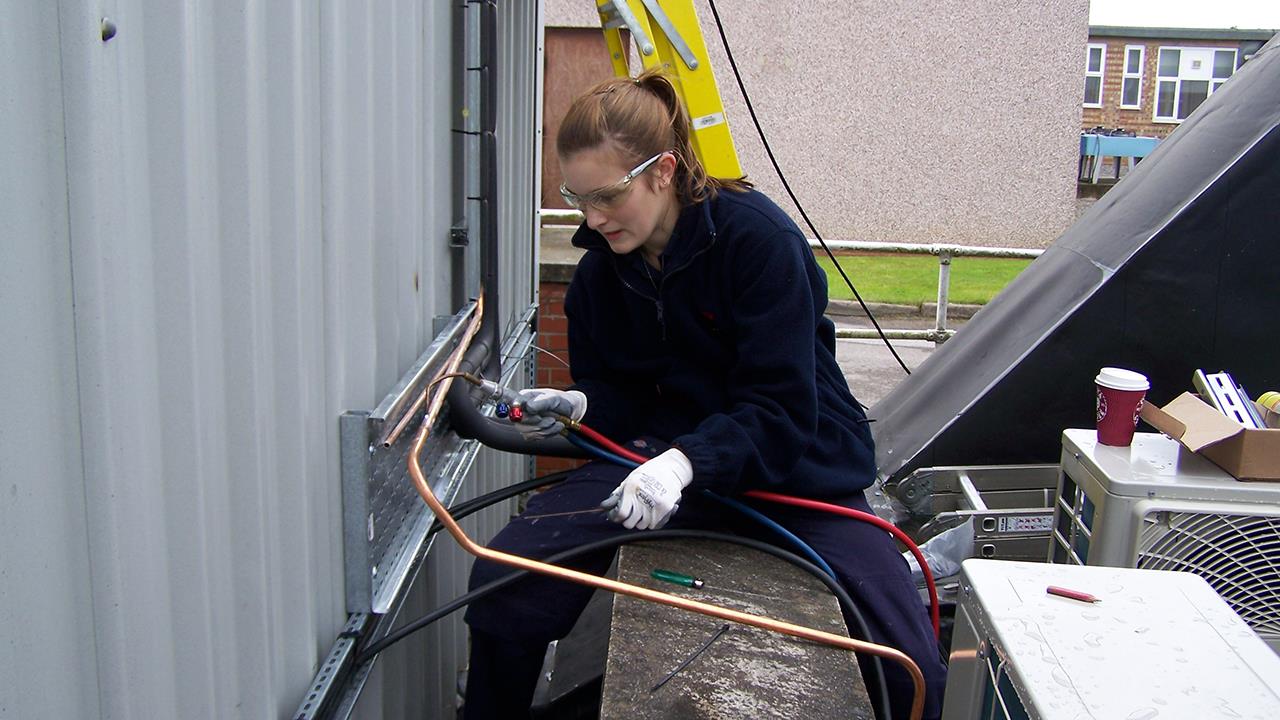

How did you get into the plumbing and heating industry?
I entered the industry through a plumbing apprenticeship achieving my NVQ2 and NVQ3 Qualifications, a highlight of which was winning BBC Young Plumber of the Year in 2010! I still keep in touch with my old college, Swindon College, to share my experience with the next generation coming in and spread the word about low carbon heating such as heat pumps.
I then worked on the tools for a while, before also moving into air conditioning on-the-job training. Shortly afterwards I transitioned into sales development and low carbon heating, where I found my passion for driving conversion to this technology to help people reduce their carbon emissions.
What have been your experiences as a woman working in the industry?
I absolutely love what I do and have met some incredible people, colleagues and customers alike, who are like a second family to me. I’ve been so fortunate to work in this environment, but of course there are challenges that come with being a woman in a traditionally male industry.
One of these would be assumptions about my ability – for example, I’ve been questioned in an interview if I was stood in a plant room could I point out the pump, low-loss header and dosing pot despite my CV detailing my plumbing and heating qualifications and experience I gained on the tools. For me, this is like asking a cleaner if they could point out a mop. However, these experiences are few and far between and if anything, it actually really encourages me to continue shaping and changing this industry so that we can break these biases going forward.
Overall, I’ve found my people and passion in this industry and would recommend it to any women looking for a purpose-driven career path to make a practical difference.
How has the industry changed since you joined it?
The most obvious thing would be the growth in low carbon heating technologies and how the industry is adapting to this. Heat pump technology has come a long way, with quieter, more efficient units and demand growing. There’s been great progress in terms of connectivity of the units and the ease of control for the end-user.
We have to adapt to the way the housing stock is changing, that as houses become more insulated their heat loss decreases and the way we heat our homes changes. There is a great resource of highly skilled installers now that have diversified and understand the market, but we still have a way to go to incorporate the changing the skills of the workforce, with things like designing the system to get optimum efficiency out of the heat pump.
There are definitely more women in the sector than when I started which is great, and networks to form a community between women in the industry, but there is definitely still progress to be made.
What advice would you give to other women looking to become a plumber and/or heating engineer?
My best piece of advice is always look out for opportunities to learn, there is no reason why you can’t do it so don’t give in to assumptions and forge your own path.
I’d also say that the stereotypes about strength and it being a ‘man’s job’ are definitely not true – when it comes to say fitting boilers or heat pumps, it’s all about technique and leverage over strength so everyone can do it.
On a practical note, I’d say reach out to people in the industry and colleges offering apprenticeships and ways into the industry, but also find your community. As I mentioned there is a growing network of women within the industry, but more widely there is such a variety of backgrounds and people in this industry, reach out and learn from those around you. Don’t be afraid to give it a go and you never know where it might lead you!
If you'd like to keep up-to-date with the latest developments in the heating and plumbing industry, why not subscribe to our weekly newsletters? Just click the button below and you can ensure all the latest industry news and new product information lands in your inbox every week.